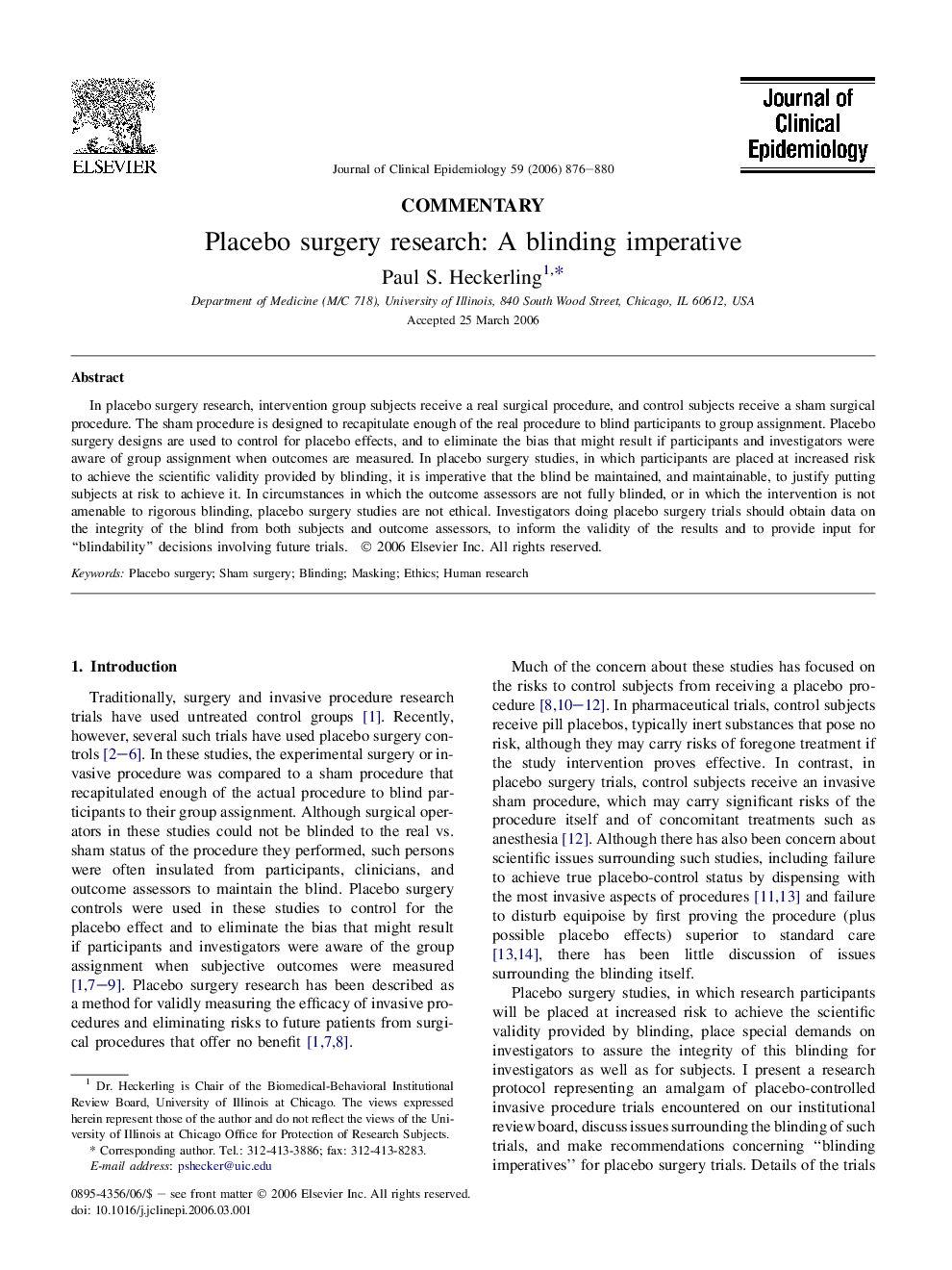| Article ID | Journal | Published Year | Pages | File Type |
|---|---|---|---|---|
| 1083425 | Journal of Clinical Epidemiology | 2006 | 5 Pages |
In placebo surgery research, intervention group subjects receive a real surgical procedure, and control subjects receive a sham surgical procedure. The sham procedure is designed to recapitulate enough of the real procedure to blind participants to group assignment. Placebo surgery designs are used to control for placebo effects, and to eliminate the bias that might result if participants and investigators were aware of group assignment when outcomes are measured. In placebo surgery studies, in which participants are placed at increased risk to achieve the scientific validity provided by blinding, it is imperative that the blind be maintained, and maintainable, to justify putting subjects at risk to achieve it. In circumstances in which the outcome assessors are not fully blinded, or in which the intervention is not amenable to rigorous blinding, placebo surgery studies are not ethical. Investigators doing placebo surgery trials should obtain data on the integrity of the blind from both subjects and outcome assessors, to inform the validity of the results and to provide input for “blindability” decisions involving future trials.
